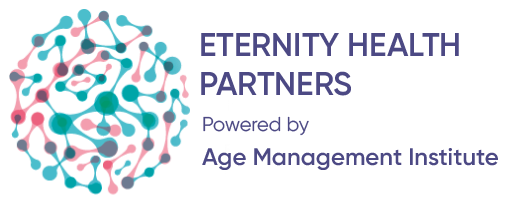Eternity Health Pillar Four: Nutrition
/Let’s face it, people love food. Celebrated as a cultural practice, food brings together families and communities. It is both nourishing and pleasurable and ultimately, it is highly controversial. When it comes to nutrition, it often seems that people, experts included, cannot agree on anything. While established that there is not one precise nutritional prescription that is universal law, we stand by certain truths that go beyond the cliché “you are what you eat.”
Avoid Sugary Foods
Sugar is a drug. Adding sugar to improve the taste of processed foods is a health care disaster. This white liar of “empty” calories kills millions of people each year. There are no nutrients in sugar. Not so sweet right? The high fructose content of added sugar is metabolized strictly by the liver. High intake has been linked with non-alcoholic fatty liver disease, insulin resistance, elevated triglycerides, abdominal obesity and high cholesterol over time. Sugar is also highly addictive accompanied by often intense cravings. Street legal and lethal, sugar is a raw deal.
Add More Omega-3
Omega-3 fatty acids are under-rated and most people do not get enough for proper functioning of the human body. For example, docosahexaenoic acid (DHA), an omega-3 fatty acid derived from animals, makes up about 10-20% of the total fat content in the brain. A low intake of omega-3 is associated with lower IQ, depression, various mental disorders, heart disease and many other serious illnesses. There are three main types of omega-3 fats: alpha-linolenic acid (ALA0, eicosapentaenoic acid (EPA) and docosahexaenoic acid (DHA). Good sources of omega-3 fatty acids include plant oils, fatty fish, fish oils, and grass-fed meat and omega-3 enriched or pastured eggs. Supplements, while helpful, should never completely replace whole food nutrition.
Cut Out Artificial Trans Fats
Artificial trans fats are evil. We won’t side step that one. Trans fats are formed as a side product when vegetable oils are hydrogenated. Food producers often use hydrogenation to harden vegetable oils for use in products such as margarine. A high intake of trans fats is directly associated with various chronic diseases, such as abdominal obesity, inflammation and heart disease. If we could eradicate one nutritional gangster from diets, it would be trans fats.
Lean and Green!
Vegetables are good for you. OK, duh. These fiber rich powerhouses are packed full of vitamins, minerals, antioxidants and trace nutrients. Survey says, eating vegetables will improve your health and lower your risk of disease. Pro tip: keep them crunchy.
The Importance of Vitamin D
It is critical to avoid a Vitamin D deficiency. Vitamin D is emerging as a nutritional superhero. This unique vitamin actually functions as a hormone in the body. If you’re deficient in vitamin D (and most people are), then you are lacking a major hormone in the body. Deficiency is associated with many serious diseases including diabetes, cancer, osteoporosis, depression and others. Unfortunately, it may be difficult to get enough vitamin D from the diet and this is one supplement we highly recommend. Ask us more about how to add Vitamin D!
Refined vs. Unrefined Carbs
Digging deeper into the controversy of nutrition, perhaps the heart of it, we must discuss refined carbohydrates. Yes, they are bad for you. Refined carbohydrates are not the same as unrefined carbohydrates. Unrefined carbohydrates are whole foods rich in carbs and include whole-grain cereals, beans, vegetables and fruits. Refined carbs are sugar and refined flour. When high carb foods such as grains are processed, the most nutritious parts are stripped off. What is left are massive amounts of easily digestible starch. Eating refined carbs will cause rapid spikes in blood glucose creating a risk for metabolic syndrome, enhancing cravings, and making it easier to store fat.
Supplements
Supplements can never fully replace real foods. You can’t take a multi-vitamin with a diet coke and call it a day. Real foods carry a massive variety of trace nutrients that are essential to optimal health and disease control. Supplements can simply not match the variety of nutrients in real food. However, supplements can be beneficial as a “supplement.” Think Vitamin D! However, no amount of supplements will ever make up for a bad diet loaded in refined carbs, processed food, and sugar. Not a chance.
Low on Supplements? Click here to find out how. Already a Fullscript subscriber, simply reorder your favorites here.
Stay Away from Processed Food
Unprocessed food will always be the healthiest option. As the food system has become more industrialized, the health of the population has deteriorated. During food processing, many of the beneficial nutrients in food are removed. Additionally, processed foods are loaded with all sorts of artificial chemicals, some of which have a questionable safety profile. Eat real food. Mostly plants. Not too much.
There is no one perfect diet for everyone. In fact, diets don’t work because clients often feel deprived and restricted. Nutritional changes must be approached as a lifestyle modification. That being said, what works for one person may not work for the next. Many do very well on low carb diets rich in omega-3 fats, while others flourish with vegetarian high unrefined carb intakes. A very popular trend that is quickly becoming foundation is intermittent fasting. Many of our clients find greater success when adapting a fasting state into their routine than with any other program. At Eternity Health, we spend a great deal of time in the “food zone.” We offer a variety of nutritional resources and provide coaching. Nutrition is the cornerstone to optimal health and longevity. Period.


